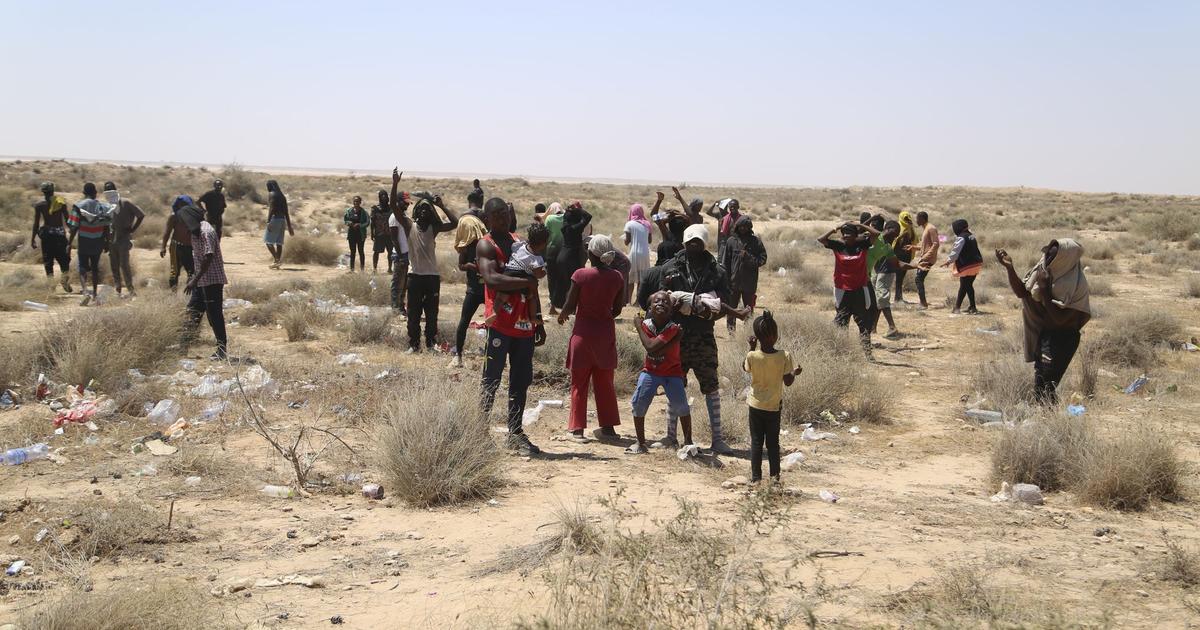When on the night of July 25 Kais Said, the president of Tunisia, seized full powers and handcuffed Parliament, thousands of euphoric Tunisians took to the streets to celebrate.
In their chants and shouts, there were almost as many expressions of support for Said as there were expletives towards his main adversary, Ennahda, Tunisia's historic moderate Islamist movement.
A harsh sentence for a party that swept the first free elections after the dictatorship in 2011 and that aspired to become the hegemonic party of the new democratic Tunisia.
"Ennahda's trajectory during this post-revolutionary decade has been a disappointment for everyone, including her own militants," says journalist and researcher Aymen Harbawy.
In fact, the crisis that the country is going through finds a reflection within the movement, where voices are growing calling for a resignation of the current leadership, which they blame for the mistakes made in recent years, in which it has governed as non-majority partner in coalitions, and that have alienated part of Tunisian society.
More information
Dictatorship and war after the truncated revolts
Two deputies arrested in Tunisia and four opponents of President Said prosecuted
“There are disagreements on the political line, but also on the internal management of the party made by its historical leader, Rachid Ghannouchi. Often times, the democratic norms of election of office have not been respected ”, explains a member of a historical family of Ennahda. During its last meeting last Wednesday, the Shura Council, the highest governing body, called for an “exercise in self-criticism”, but no heads rolled, as requested by the critical sector. “The party is divided into two camps. Several leaders left the meeting before it ended, ”says analyst Huda Mzioudet.
A wide current of opinion in Tunisia points to Ennahda as the main or only culprit for the mismanagement of the government and the widespread corruption that eats away at the state, which has resulted in a loss in the standard of living for the ordinary citizen. The moderate Islamist party led the first post-revolutionary government and the Constituent Assembly that drafted the current fundamental law in 2014. Then, its proposal to include the
sharia
as a source of law, generated strong resistance among the secular sectors, which forced the party to give it up. But the polarization between Islamists and secularists no longer disappeared.
Although her secular rivals from Nidá Tunis won the following elections, in 2014, Ennahda made a pact with them and has been present with a greater or lesser quota in the ten governments that have succeeded each other since the fall of the dictator Zine el Abidine Ben Ali , in the first uprising of the so-called
Arab Spring
.
Although he has won three of the six elections held to date, his percentage of votes has been progressively decreasing: from 1.5 million votes in 2011 to 500,000 in the legislative elections in 2019.
Join EL PAÍS now to follow all the news and read without limits
Subscribe here
The deputy and former Minister of Labor Saida Ounissi considers the virulence of the criticisms unfair: “Certainly, Ennahda has a part of the responsibility in a management of the country that has not been satisfactory, but she does not have it all. We have only led the Government in 2012 and 2013, then we were partners in broad coalitions ”. However, some of these partners, such as Nidá Tunis, have now almost disappeared from the political scene, so they can no longer be held accountable. “The current animosity towards Ennahda is explained not only by her mistakes during the transition, but also because, for decades, she presented Islamism as the enemy of the state. Many of us grew up with that narrative. And that residue remains, ”says the governance consultancy Ibtissem Jouini.
“After the revolution, Ennahda's strategy went through making a pact with the elites of the old regime with the aim of being accepted as an integral part of the ruling class.
In exchange, he sacrificed his revolutionary postulates.
But, broadly speaking, these elites have not accepted the movement, ”says Harbawy.
For example, Ennahda accepted a "reconciliation" law with corrupt officials from the Ben Ali era that critics denounced as an amnesty.
In the end, according to Harbawy, the Islamist movement has been left alone, without the support of the secular elites, nor that of the popular sectors that demanded profound changes in the economic system.
Ennahda's experience has points in common with that of other Islamist parties after the
Arab springs
. In several countries, Islamist parties emerged victorious at the polls, but either because of their political inexperience or because of the obstacles put up by supporters of overthrown dictatorships or counterrevolutionary projects, their governments were disappointing. "They were prepared to be the opposition, not to govern," says Mzioudet. In Egypt, the Muslim Brotherhood was toppled by a mass-supported military coup in 2013. The fall from grace also haunts the Islamists of Morocco, where the Party of Justice and Development (PJD) will undergo the revalidation of the legislatures next month after two legislatures leading the Government. In the opposite direction, Hamas has a chance of winning a free election in Palestine.
Despite her low hours, it is early to write Ennahda's obituary. “It is the only party with a presence in the entire country. Even in the smallest town he has an office. If there is a change in his leadership, he could regain part of the lost votes, ”predicts Harbawy.

/cloudfront-eu-central-1.images.arcpublishing.com/prisa/RSX2MDE7WBVJ65DNYWPGPF4YZQ.jpg)










/cloudfront-eu-central-1.images.arcpublishing.com/prisa/KMEYMJKESBAZBE4MRBAM4TGHIQ.jpg)


